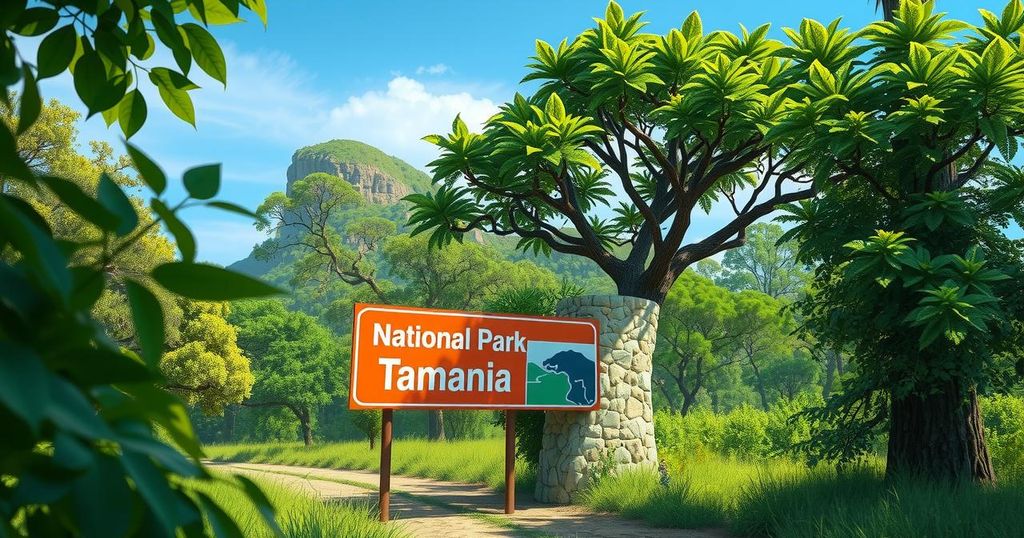Business
economics
AFRICA, ARUSHA, BUDGET, ECONOMIC IMPACT, ECONOMY, ELI, EUROPE, HASSAN ABBAS, INFRASTRUCTURE, LYIMO, PARKS, SUPPLY CHAIN, SUSTAINABILITY, TANAPA, TANZANIA, TANZANIA ASSOCIATION OF TOUR OPERATORS, TANZANIA NATIONAL, TATO, TAWA, UK, UNITED KINGDOM, YU, YUSSUF KABANGE
Leila Ramsay
0 Comments
Tanzania Freezes Park Entry Fee Increases for One Year
The Tanzanian government has confirmed that park entry fees will remain unchanged until March 2026, thus ensuring stability in the tourism sector. This decision follows discussions addressing concerns about sudden fee increases, confirming a ten-month grace period for current fees, along with a commitment to stakeholder involvement in any future adjustments.
The Tanzanian government has announced a freeze on park entry fee increases for the next 12 months, signaling a commitment to stabilize the tourism sector. Ms. Jully Lyimo, Assistant Conservation Commissioner at Tanzania National Parks (Tanapa), stated that existing rates will remain unchanged at least until March 2026, allowing tourists and investors the necessary time for preparation before any adjustments take place.
During a recent meeting with UK tourism stakeholders, Ms. Lyimo emphasized that the initiative aims to foster stability within the tourism industry. Additionally, the Tanzania Wildlife Management Authority (Tawa) confirmed through Acting Conservation Commissioner Yussuf Kabange that no new charges will be imposed until March 2026. This ensures a transparent process for any future alterations to tourism fees, involving stakeholder engagement.
Concerns were previously raised by the Tanzania Association of Tour Operators (Tato) regarding sudden fee hikes, which resulted in increases of up to 100 percent due to regulatory amendments. Tato’s executive director, Elirehema Maturo, criticized these abrupt changes as detrimental to the tourism sector, which is crucial to Tanzania’s economy.
In response to these issues, the Minister for Natural Resources and Tourism, Pindi Chana, convened a discussion with Tato officials to address their concerns and acknowledged the necessity of advance notice for substantial fee revisions. Consequently, the government has agreed to suspend the implementation of new fees and allow a ten-month grace period from February 15, 2025, to December 31, 2025, ensuring the existing regulations remain effective during this time.
Mr. Yussuf Kabange elaborated that the decision to suspend fee increases aligns with the feedback received from tourism stakeholders. This initiative seeks to support sustainable growth in the tourism sector. While tour operators appreciate the government’s approach, there is a growing call for formalizing these practices into law to prevent sudden regulatory adjustments in the future.
Tato chairperson Wilbard Chambulo called for legal requirements for advance notification of fee changes, which would promote stability and boost investor confidence. Mr. Chambulo noted that tourism stakeholders have long expressed frustration over unexpected fee changes without adequate notification. He advocates for regular consultations between the government and the private sector to ensure smooth implementation of future adjustments and long-term sustainability. Similarly, tour operator Athumani Njiku stressed the importance of collaboration to enhance transparency and align with market demands, underscoring the need for ongoing dialogue between government entities and industry participants.
In conclusion, Tanzania’s decision to maintain current park entry fees for the next year underscores its commitment to a stable tourism sector amidst concerns from operators regarding sudden fee increases. The suspension of fee hikes, coupled with a grace period and the promise of stakeholder involvement in future adjustments, reflects government responsiveness to industry needs. Moving forward, the call for formalizing advance notice and regular consultations may help ensure the sustainable growth of Tanzania’s vibrant tourism industry.
Original Source: www.thecitizen.co.tz




Post Comment